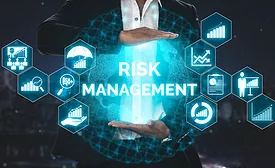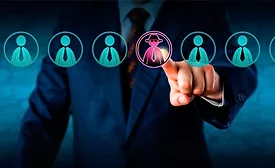Security & Business Resilience
HR and Security: Work together, win together
Why HR and Security have finally teamed up
September 30, 2020
The 5 must do’s for every workplace risk management plan
First and foremost, employers must have a plan
September 30, 2020
Five key steps to full device defensibility
Part 3: Protecting distributed IoT devices
September 29, 2020
GRC leaders lack confidence in security data they provide to regulators
September 28, 2020
Sign-up to receive top management & result-driven techniques in the industry.
Join over 20,000+ industry leaders who receive our premium content.
SIGN UP TODAY!Copyright ©2026. All Rights Reserved BNP Media.
Design, CMS, Hosting & Web Development :: ePublishing













